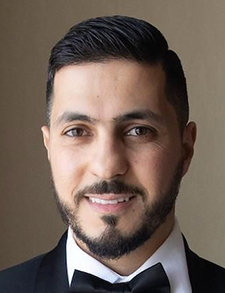
Dr. Abd-Rabu
Presenters: Jennifer K. O’Toole, MD, MEd, Vineeta Mittal, MD, MBA, Neha H. Shah, MD, MPH, and Nancy Spector, MD
This PHM 2023 session encapsulated a dynamic exploration into the realm of enhancing leadership skills in the contemporary landscape. The session aimed to illuminate the distinctions between traditional and modern leadership approaches, fostering a deeper understanding of the evolving paradigms.
Probably first and foremost was the difference between the hierarchical versus the collaborative approach. Traditional leaders often adopt a top-down, hierarchical approach, where decision-making authority rests predominantly with the leader. In contrast, modern leaders emphasize collaboration and seek input from team members, valuing diverse perspectives and collective decision making. Additionally, traditional leadership tends to rely on a command-and-control model, where leaders direct tasks and closely monitor progress. Modern leaders empower their teams, giving individuals autonomy to make decisions, take ownership of their work, and contribute creatively.
Another important difference is that traditional leaders may prioritize individual accomplishments and performance metrics. Modern leaders place a stronger emphasis on team cohesion, recognizing that collective achievements are often more impactful than individual success. The modern leader focuses on long-term goals and the traditional is focused on the short term.
The last difference was the idea of intrinsic versus extrinsic rewards and this can be described as transactional versus transformational leadership. Traditional leaders may focus on transactional exchanges (rewards for performance), whereas modern leaders adopt a transformational approach, inspiring and motivating their teams through a shared vision and values. Overall, a modern leader is seen as someone who is collaborative, empowering, humble, visionary, equity-focused, and soft-skilled.
Delving further, participants engaged in a thoughtful analysis of prevalent scenarios that confront modern leaders in their pursuit of championing equity and dismantling discriminatory frameworks. The core objective centered around identifying actionable pathways to recalibrate personal leadership styles, thus embarking on a transformative journey toward embodying the essence of a modern leader.
Finally, there was a worksheet provided that allowed individuals to contemplate SMARTIE (strategic, measurable, ambitious, realistic, time-bound, inclusive, and equitable) goals on how they may begin to develop modern leadership qualities. The worksheet provided a framework that allowed you to think about the mentorship, support, and resources you’d need to achieve the goal and any barriers that may hinder progress. In addition, it was suggested to identify a specific mentor or leader who may help you achieve that goal.
Key Takeaways
- To be successful in our advancing world, leaders must adopt qualities consistent with modern leadership approaches.
- In comparing modern versus traditional leaders, modern leaders tend to be more collaborative, long-term goal-focused, focused on intrinsic rewards, and draw on the strengths and collective leadership of others.
- To equip ourselves with the tools to develop modern leadership skills, it is helpful to think about these qualities and identify SMARTIE goals that take into consideration what resources could be needed, any barriers, mentorship, support, and specific leaders or mentors who can help you achieve those goals.
Dr. Abd-Rabu is a senior postdoctoral research associate at Mayo Clinic in Rochester, Minn. He also currently conducts research projects at the department of pediatric surgery at the University of Illinois College of Medicine in Peoria, Ill., and is a co-author of the global burden of disease study at the University of Washington Hans Rosling Center for Population Health in Seattle.

